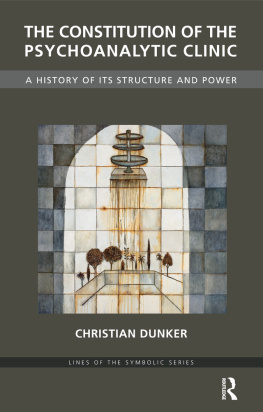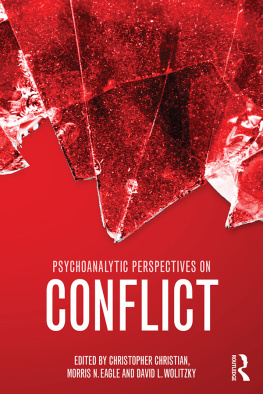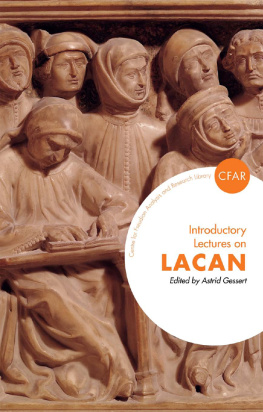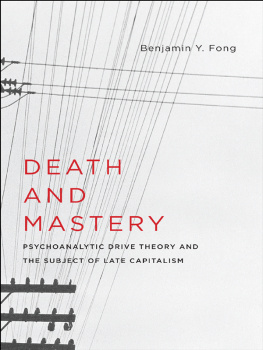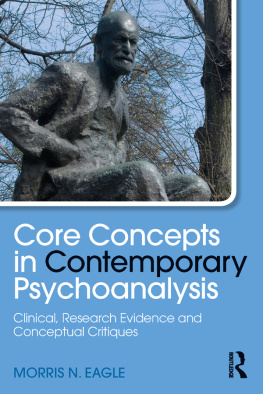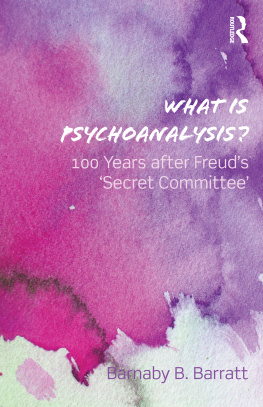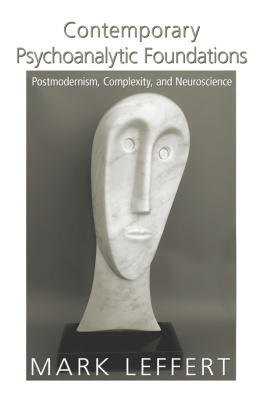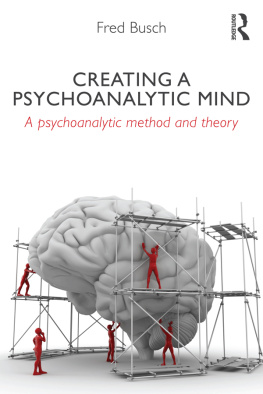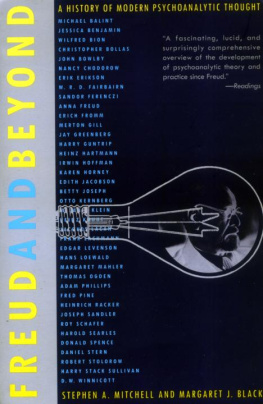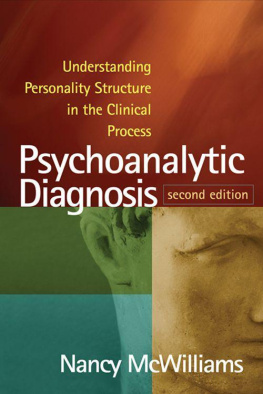THE CONSTITUTION OF THE PSYCHOANALYTIC CLINIC
Lines of the Symbolic Series
Edited by Ian Parker
From the Conscious Interior to an Exterior Unconscious: Lacan, Discourse Analysis, and Social Psychology by David Pavn Cullar
The Constitution of the Psychoanalytic Clinic
A History of its Structure and Power
Christian Dunker
First published 2011 by Karnac Books Ltd.
Published 2018 by Routledge
2 Park Square, Milton Park, Abingdon, Oxon OX14 4RN
711 Third Avenue, New York, NY 10017, USA
Routledge is an imprint of the Taylor & Francis Group, an informa business
Copyright 2011 by Christian Dunker
The right of Christian Dunker to be identified as the author of this work has been asserted in accordance with 77 and 78 of the Copyright Design and Patents Act 1988.
All rights reserved. No part of this book may be reprinted or reproduced or utilised in any form or by any electronic, mechanical, or other means, now known or hereafter invented, including photocopying and recording, or in any information storage or retrieval system, without permission in writing from the publishers.
Notice:
Product or corporate names may be trademarks or registered trademarks, and are used only for identification and explanation without intent to infringe.
British Library Cataloguing in Publication Data
A C.I.P. for this book is available from the British Library
ISBN-13: 9781855756465 (pbk)
Typeset by Vikatan Publishing Solutions (P) Ltd., Chennai, India
Contents
- CHAPTER ONE
The doubt of Ulysses - CHAPTER TWO
The return of Empedocles - CHAPTER THREE
The act of Antigone - CHAPTER FOUR
Rhetoric of space, rhetoric of time: paradox and interpretation - CHAPTER FIVE
Taking care of oneself - CHAPTER SIX
Montaigne, the most sceptical of the hysterics - CHAPTER SEVEN
The meditation of Descartes - CHAPTER EIGHT
The structure of psychoanalytic treatment - CHAPTER NINE
Kant and the pathological - CHAPTER TEN
The rebirth of the clinic as structure and as experience - CHAPTER ELEVEN
Hegel: the real and its negative - CHAPTER TWELVE
Logic and politics in psychoanalytic healing
- CHAPTER ONE
The doubt of Ulysses - CHAPTER TWO
The return of Empedocles - CHAPTER THREE
The act of Antigone - CHAPTER FOUR
Rhetoric of space, rhetoric of time: paradox and interpretation - CHAPTER FIVE
Taking care of oneself - CHAPTER SIX
Montaigne, the most sceptical of the hysterics - CHAPTER SEVEN
The meditation of Descartes - CHAPTER EIGHT
The structure of psychoanalytic treatment - CHAPTER NINE
Kant and the pathological - CHAPTER TEN
The rebirth of the clinic as structure and as experience - CHAPTER ELEVEN
Hegel: the real and its negative - CHAPTER TWELVE
Logic and politics in psychoanalytic healing
Guide
This book traces a history of psychoanalytic practice, of the clinic as a circumscribed social space in which one human being speaks to another and finds a way to speak such that what they say has something of the truth about it. This clinic operates now as counterpoint to a world run through with deceit, a world that seems to call upon each subject to deceive themselves and others in order to survive. But what Christian Dunker shows us is that the talking cure that took shape in the Western world accumulated its rationale from diverse sets of debates over the relation between language and truth. His exhaustive genealogy of what it means to speak well in this world ranges from ancient studies of rhetoric to medieval theological examination of the nature of the word to philosophical investigations into the nature of linguistic representation.
The book tracks its way through the complex historically layered conditions of possibility for subjects to address each other in psychoanalytic space; it takes us a significant step forward in grasping how Freud and then Lacan could have been able to address an audience in Western culture and then throughout the world. And Dunker accomplishes something much more in this magisterial account, adding a psychoanalytic sensibility to the genealogy of psychoanalysis and thereby introducing another twist into what we think we know about speech and the subject. He brings to the history a crucial argument about the relation between place, space, and position in speech, and how psychoanalysis in the clinic must uncouple that relation between these three aspects if it is to avoid reducing the subject to its pathological forms. At this point, which for Dunker is where the best of Lacan connects with the best of Foucault, we realize that unravelling the relation between place, space, and position is what Dunker has been accomplishing in his historical study throughout the book. One might say that this is genealogy in reverse, for it succeeds in re-activating well-worn, imperfectly remembered and overlooked theories of language. Only now perhaps, after the event, is it possible for us to appreciate how pre-psychoanalytic theories of language were necessary to the formation of psychoanalysis itself. This book is an interpretation of that world of psychoanalysis that will change how we think and speak about it now.
Psychoanalytic clinical and theoretical work circulates through multiple intersecting antagonistic symbolic universes. This series opens connections between different cultural sites in which Lacanian work has developed in distinctive ways, in forms of work that question the idea that there could be single correct reading and application. The Lines of the Symbolic series provides a reflexive reworking of psychoanalysis that translates Lacanian writing from around the world, steering a course between the temptations of a metalanguage and imaginary reduction, between the claim to provide a gods eye view of psychoanalysis and the idea that psychoanalysis must everywhere be the same. And the elaboration of psychoanalysis in the symbolic here grounds its theory and practice in the history and politics of the work in a variety of interventions that touch the real.
Ian Parker
Manchester Psychoanalytic Matrix
After advising masters and doctoral students for several years and after having been a candidate myself in similar situations, I now realize more clearly the decisive repercussions this type of work has on a persons life. Working on an academic project represents not only a time when loved ones are deprived of our presence and we are deprived of theirs. There is also a subjective split that widens as the text gradually develops. There is a type of indirect and invisible dialogue with those around us: our family and friends, students and patients. There is a feeling of gratitude, along with the hope that they not only feel represented, but that they sense they are participating in a collective project. The cooperation of my two children, Mathias and Nathalia, not always particularly silent, was simply indispensable in helping me avoid the type of self-preoccupation into which a project like this can dangerously lead us. And there was the invaluable participation of my wife, Ana Cristina, who was always able to create a special gesture when it might have seemed most improbable during long nights of agendas, document printing and books being delved into. My dearest mother was also an important participant in the project, as she was the first to point out the road to letters and teach me the art of facing the confusion and despair necessary for creation. And there were my cherished students and advisees, especially Paulo, Ronaldo, Ana, Abenon, Ceclia, and Leandro, who brought up central questions at unexpected moments, and Anna Turriani who helped me a lot with her Sabre de Luz . The working group on the writings of Jacques Lacan, first at So Marcos University and later at the University of So Paulo, was the first vehicle for this dissertation. I am therefore grateful to all those who participated in it over these last six years. I want also to express my thanks to the participants of the Forum of Psychoanalysis of the Lacanian Field, especially Dominique and Hel, for their encouragement on the research, as well as for a number of emergency translations. I also owe thanks to my colleagues at our office, Ana Laura, Michele, Conrado, Gui, and Bia, for the most productive serendipitous discussions I have ever experienced. Further gratitude goes to Ana and Micha for their reading and crucial indications in the text, as well as to Andressa, my essential schedule juggler. My dear friend lvaro Faria has been the outside interlocutor closest to psychoanalysis that I know. I am also grateful to Vladimir Safatle, my dear friend and companion at philosophical-psychoanalytic workshops. He was tremendously helpful not only because of the great importance of his work for the development of mine, but also in terms of his genuine personal concern and interest in our dialogues. I owe the rediscovery of what it means to miss someone to Ian Parker and Erica Burman, who welcomed me to Manchester Metropolitan University and with whom I was able to discuss the first steps in this study. I am also grateful to my long-time colleagues at the Institute of Psychology of the University of So Paulo (IPUSP), especially Lia and Helena, for their patience and encouragement on this project. Finally, I cannot fail to mention the discussions I had with Contardo Calligaris and the constant presence of those who introduced me to the study of philosophy and psychoanalysis: Luis Cludio Figueiredo and Luiz Carlos Nogueira. After all and everything I must express my profound gratitude to Terence Hill, who translate and discuss the English version of this text with me, with all his patience and Irish solidarity.

